Maerdy: Still fighting, 25 years after pit closure
- Published
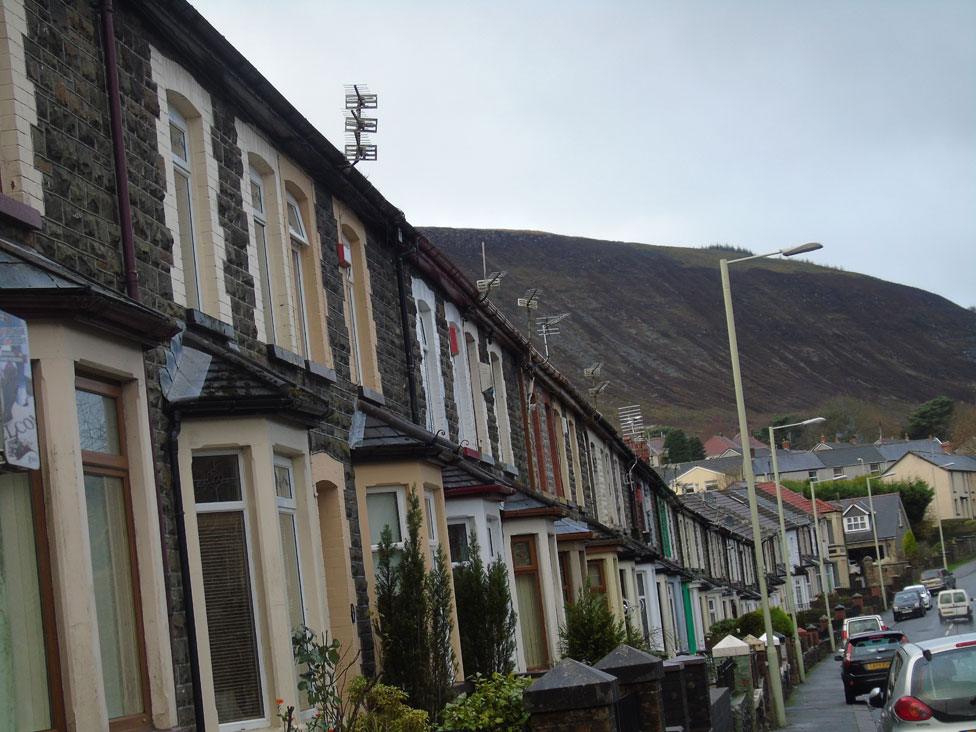
Maerdy stretches up hill, to the village centre at the top
Maerdy is at the very end of Rhondda's two valleys - the Rhondda Fach - before the road takes you over the river, up the mountain and twists around to the town of Aberdare in the Cynon Valley.
It is 22 miles (35km) north of Cardiff.
The colliery closed 25 years ago this week but it has not been the only local landmark to shut.
Maerdy Workingmen's Hall was demolished; then there was the demise of the post office and the bookmakers' shop. Even the church closed.
Four years ago, the village found itself fighting, unsuccessfully, to keep St Mary's open as the Church in Wales faced a £400,000 repair bill.
A couple of takeaways lie empty on the high street and a cafe closed a few months ago.
But there is a butcher's shop, a pharmacy, doctors' surgery, a grocers, florist, beauty salon and a hairdressers. There is a bar and two social clubs.
There are plans to rebuild the Spar shop on a bigger site nearby. Importantly, the village charity shop helps raise money for projects around the area.
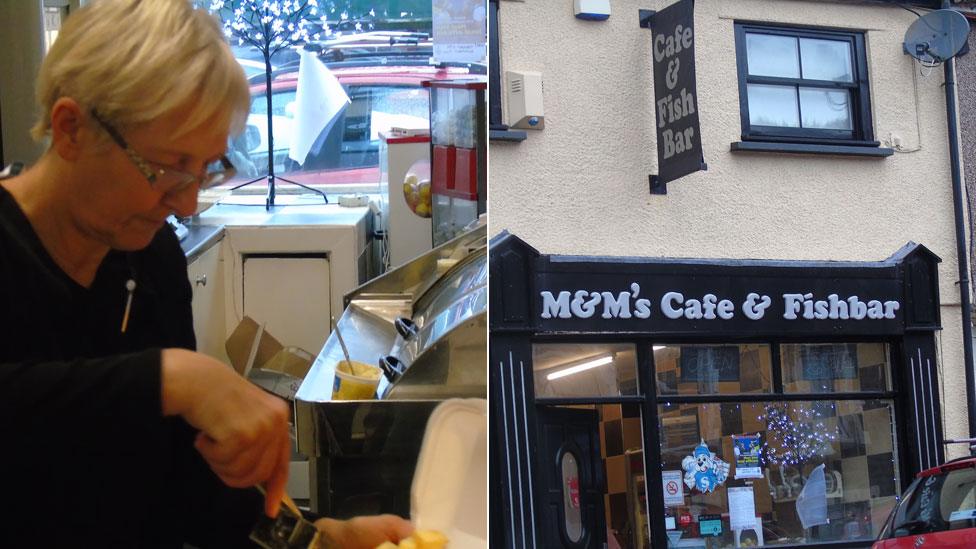
Susan Jones in the fish bar and cafe
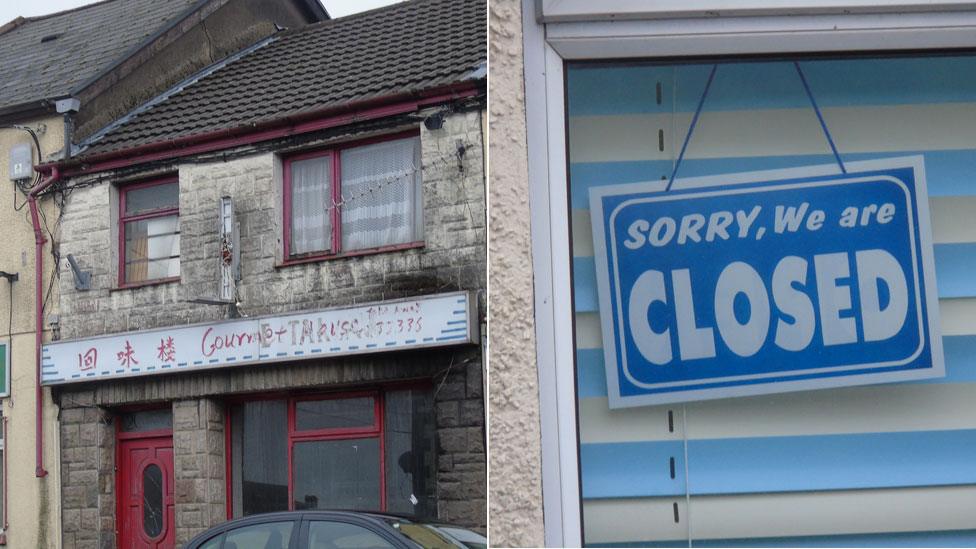
Some shops are closed
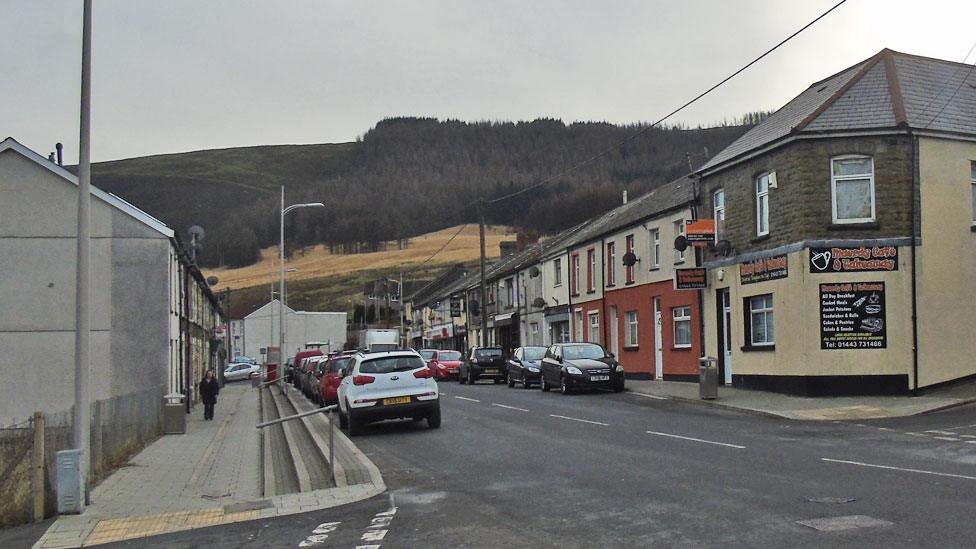
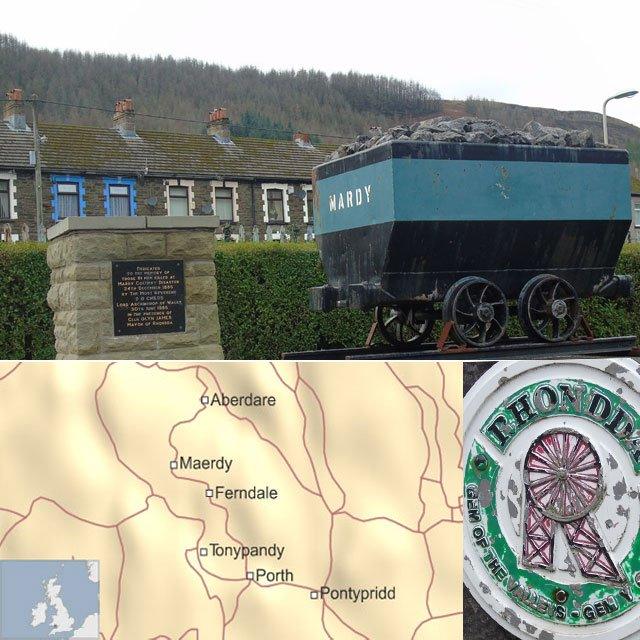
'WE NEED SOMETHING'
"A lot of the shops have shut down," says Susan Jones. "I used to work for Rhian's cake and bread shop but that closed and I started work here."
She is behind the fryer at M&Ms fish and chip shop - one of two chippies in the village, the other at the bottom end of the village. It is the warmest place in Maerdy on a winter's day, with a biting wind outside.
When the owners took over eight years ago, they extended through to open a cafe. Residents pop in for a coffee or to pick up pie and chips. I asked for curry sauce on my chips and there were three varieties. I had to try "Irish curry sauce" - sweet and spicy, if you want to know.
Susan, 57, whose husband Gareth, 59, worked at the pit, recalls the closure but also remembers the strike just five years before that.
"My daughter was born in the miners' strike," she said, "It was a difficult time, we struggled, we didn't have a lot of money.
"But the village all pulled together. We used to have Maerdy Hall just across the road there and food delivered from people everywhere.
"We had food parcels given to us. I remember having tins of tomatoes, tins of beans and corn beef, a Fray Bentos pie and perhaps five pounds of potatoes and that would be it."
After the pit closed "it was awful for a long time. All the men fought so hard to keep it open. And all the women were all behind them too."
Mrs Jones' husband had a few jobs before retraining as a wall tiler.
"I don't think it's the same since the pit shut. We need more factories or something up here."

THE MAERDY ECONOMY
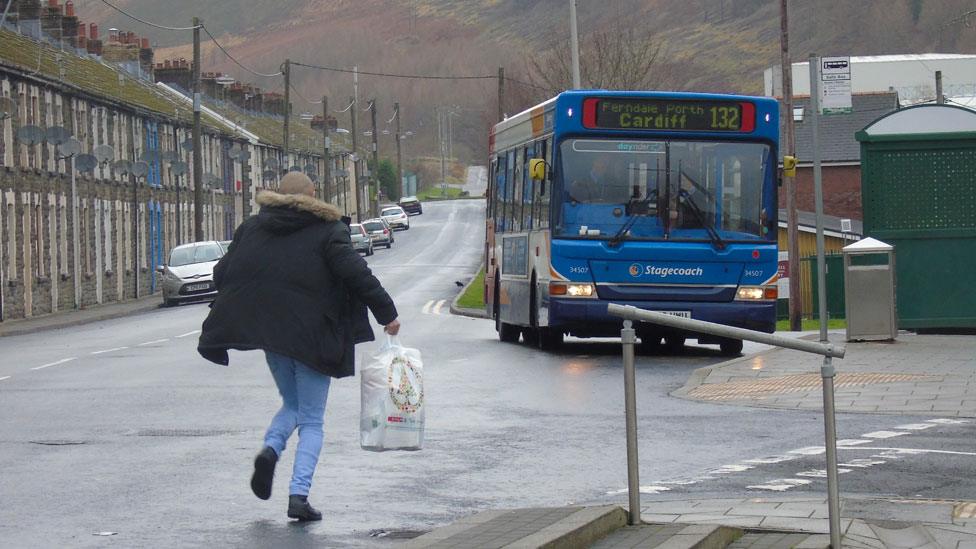
There is a regular bus service as only 60% of people have access to a car
Looking at Maerdy, there are problems which are familiar to other villages and small towns up and down the country. But there is also a legacy of its mining past.
16% of people in Maerdy are said to be in bad or very bad health - twice the Wales average
18% of homes with children have no adults working (the average in Rhondda Cynon Taf is 15%)
14% are unemployed, compared to 8% in Wales and England (2011)
40% of adults have no qualifications (the England and Wales average is 15%)
41% have no access to a car - compared to 22% in the rest of Wales
155 adults and children from Maerdy have been fed by the Rhondda food bank, external since the start of the year
Sources: ONS/Rhondda food bank
There is no railway station to serve just over half the population of 3,500 who are working age. The track which served the colliery was pulled up; the nearest station is five miles (8km) away in Aberdare, or down the valley, six miles (10km) away in Porth.
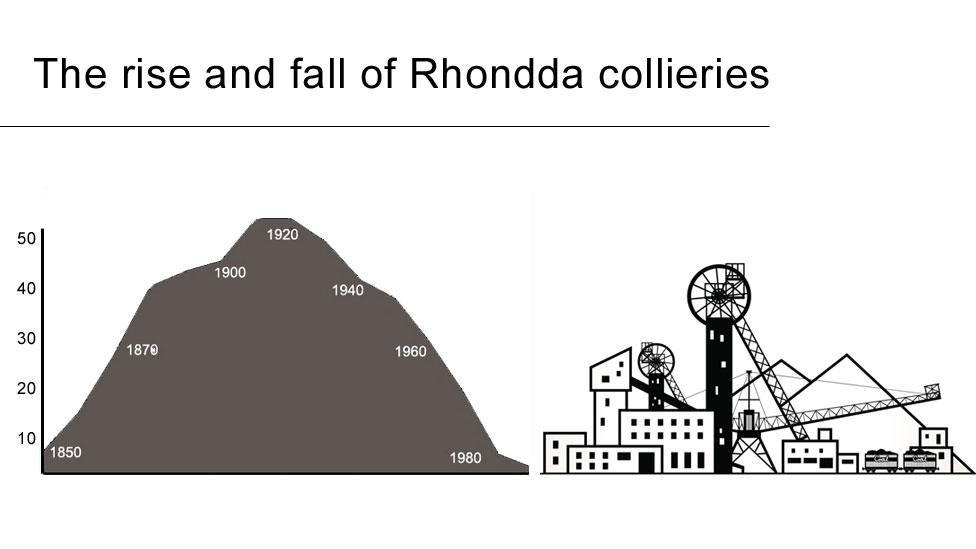

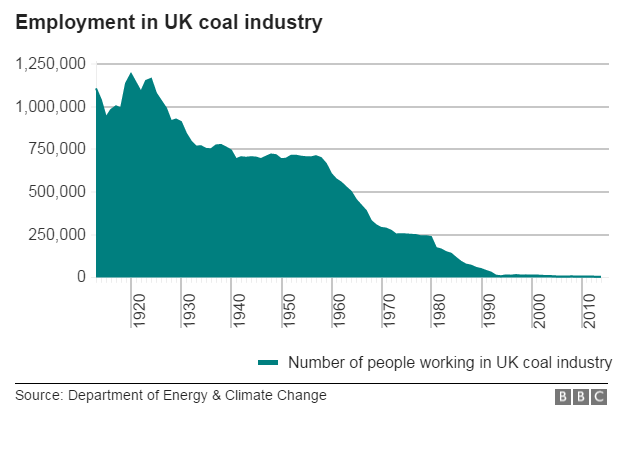
Communities First have eight areas in the Rhondda Cynon Taf county area working on projects to boost learning, skills and health, as well as running youth sessions.
Coordinator for the Rhondda Fach area, Ros Davies, runs work and skills clubs.
"There's a Catch 22," she says. "People need to travel for work but the pay needs to be enough for them to afford it. Car ownership is quite low here. The bus service is very good but it's expensive.
"I've been here since 2002 and it's quite a resilient community. Maybe that's due to the miners' strike, but people will join together and put things on to raise money."

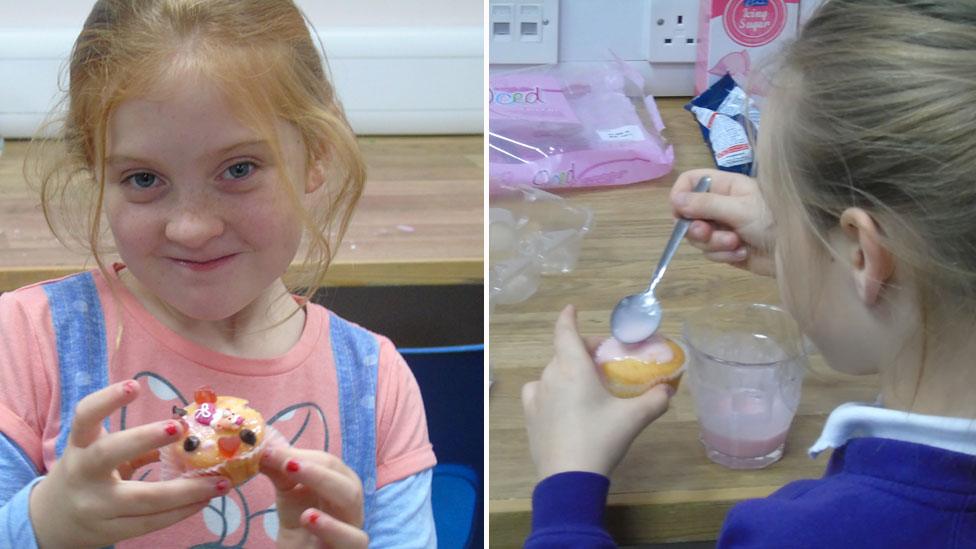
Icing on the cake - Maerdy library reopened earlier this year and is now run by a charity
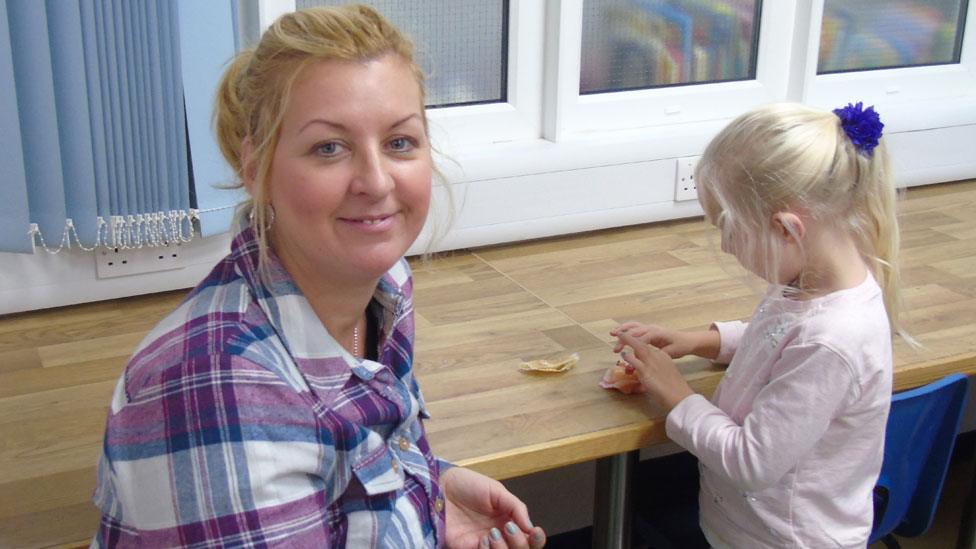
Natalie Wells said the community fought hard to reopen the library
MAERDY FIGHTING BACK - THE LIBRARY CAMPAIGN
What Maerdy is not short of is community spirit.
The most recent battle was to reopen the village library, closed due to budget cuts. Thanks to a charity - Friends of Ferndale - it reopened as a village hub and employs two community workers.
As well as children's activities, there is a Welsh class, craft morning and there are plans for adult learning classes. A mobile library will visit and it is hoped it will be a satellite for the Welsh government-funded Flying Start programme.
This provides free childcare with the aim of helping mothers back into work or training, which has already set up at the village secondary school.
Natalie Wells, 40, who has a cake decorating business, was at school when Mardy Colliery closed and remembers "tough times".
She talks about the Maerdy spirit and how the community got behind the library campaign.
"We had a petition - thousands of signatures - tried all ways for funding, people volunteered just for it not to close but the funding was cut and it was closed," she said.
"We fought hard for this. The kids need it, there's not a lot around, the youth clubs were closing, we don't want them on the streets.
"This is lovely, they come from school, making crafts with friends and it teaches them more of the community spirit of what it was like when we were their age."

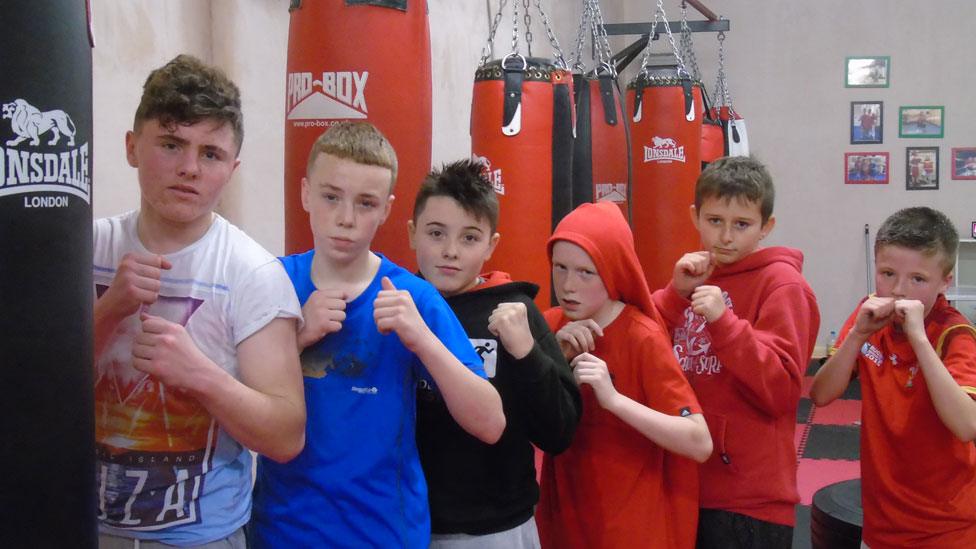
Still fighting - the Maerdy community rallied round to help set up the local boxing club
MAERDY FIGHTING BACK - THE BOXING CLUB
The fighting spirit is there in abundance three evenings a week at Maerdy Boxing Club.
Businessman Brett Parry set up the club nearly three years ago with coach Mike Hughes.
Even on a terrible night, with torrential rain pounding on the roof, eight youngsters have turned out for a full gym work out.
They put them through their paces and joke with them that they will be sent out on one of the gym's training runs up one of the village hills. Luckily, these are reserved for the summer months.
After "taking a punt" on buying a dilapidated building, the community rallied around the pair as they looked to renovate it.
"Everyone came together, every tradesmen under the sun offering not only free labour but also materials," said Mr Parry.
"The offers have been endless. The help in the village alone has been superb.
"It goes to show you need one person to come up with an idea and be that leading figure and then there are a lot of people who want to help."
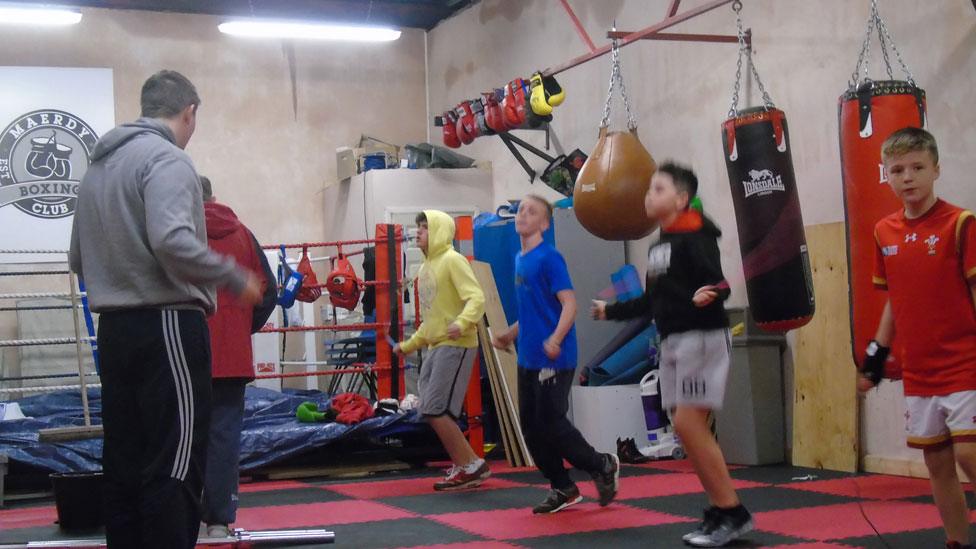
The boxing gym runs three evenings a week in a converted store building
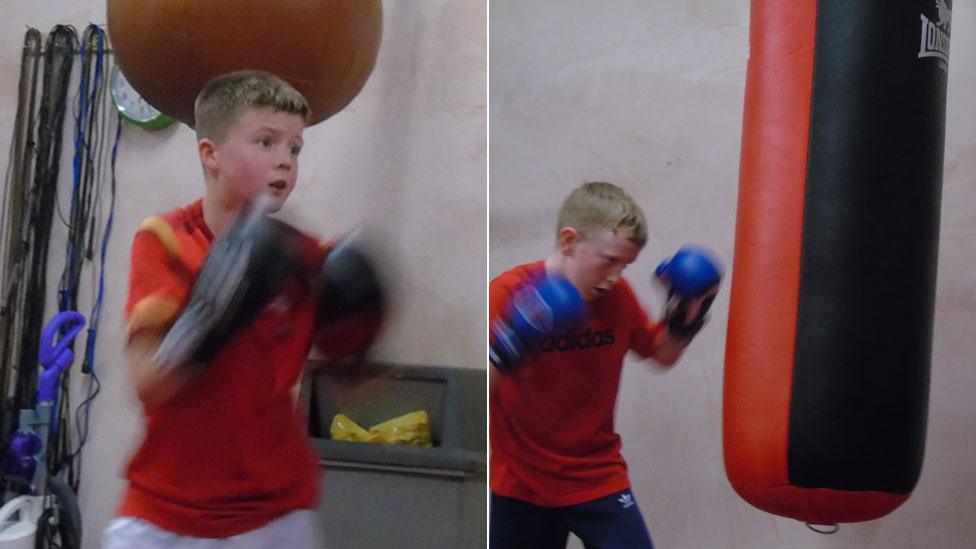
The club is open to all ages but is popular with youngsters

Sports Wales and local companies have also helped fund equipment

Alex Hughes (left) is a local hero - and unbeaten in six professional fights
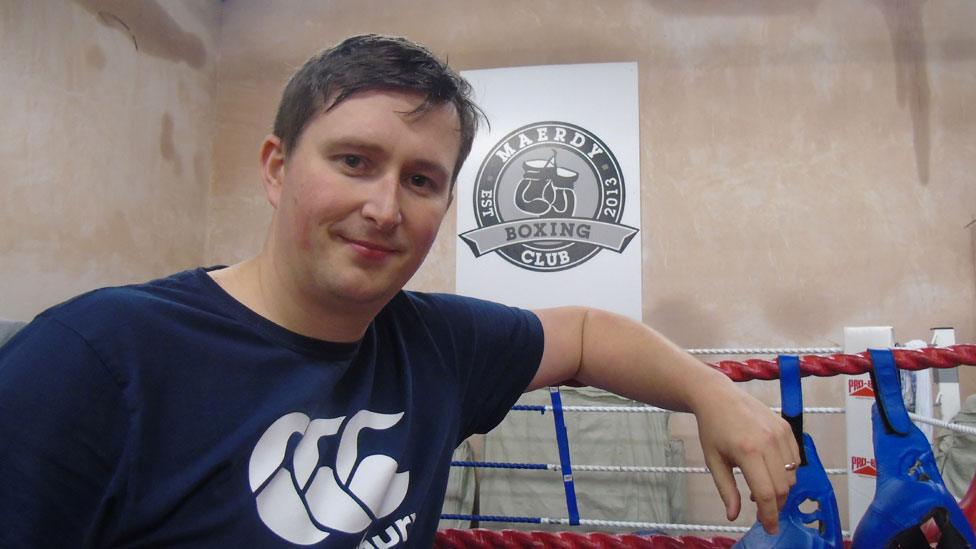
Brett Parry said the boxing club can help transform children
Those using it are aged 10 to 60 and since 2013, the club has had four Welsh novice champions - aged from 10 to 16.
The children also have someone to look up to - coach Mr Hughes' 21-year-old son Alex "Bad News" Hughes is a super middleweight with high hopes that can only be good news for Maerdy.
He now has six fights unbeaten as a professional, training out of Gary Lockett's gym in Cardiff and with Frank Warren promoting him.
"Alex is on the right path and a big prospect," says Brett. "It's great for the children to see him - he'll use the gym here a couple of times a week - but they can look up to someone and what you can achieve if you work hard."
RHONDDA - A NEW FACE FOR LOCAL POLITICS
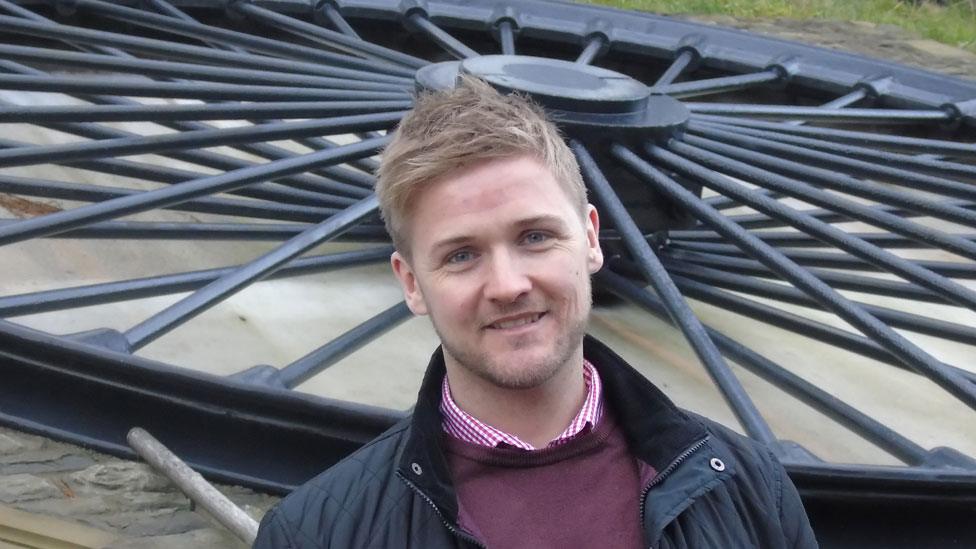
Keiron Montague returned to Maerdy
A school friend of Mr Parry is Keiron Montague. Both were eight-years-old when the colliery closed.
His father, Barrie, lost his job after 24 years in the pit but had qualified as an electrician and he was able to find work.
Keiron Montague "absolutely loved" growing up in Maerdy.
"We had a fantastic environment and I really enjoyed school; there were lots of activities going on, fantastic local groups and that community spirit," he said.
He left to study for a degree in Cardiff but returned to live and worked running youth services in Merthyr Tydfil, across the heads of the valleys.
He became the councillor for Maerdy three years ago, and is now full-time with the authority as deputy leader of Rhondda Cynon Taf council.
"Most of the people I've spoken to who worked in the mines never found it the same afterwards - the camaraderie and the type of employment," he said.
"But a lot of people have moved on and done very well for themselves. But some have struggled and we have a history of poor health."
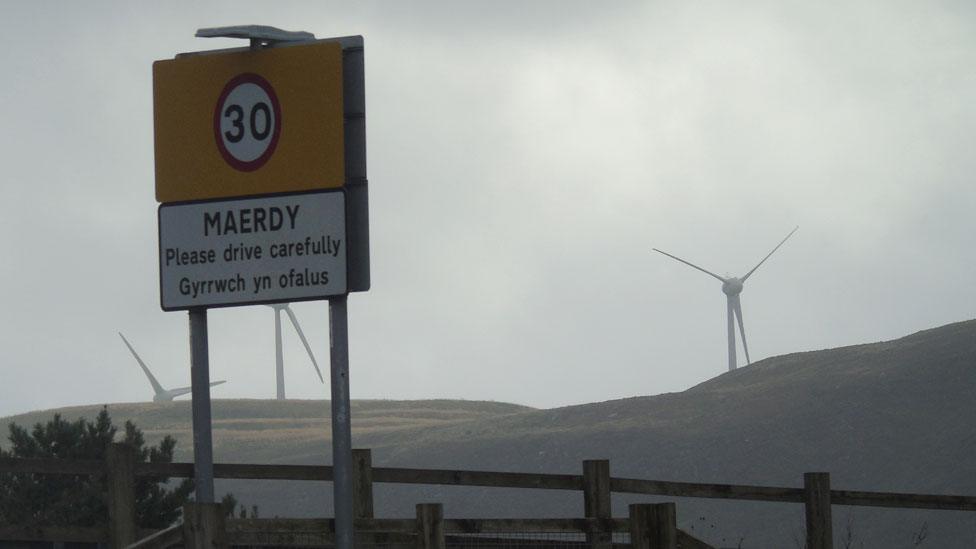
Maerdy and nearby villages are more about wind than coal
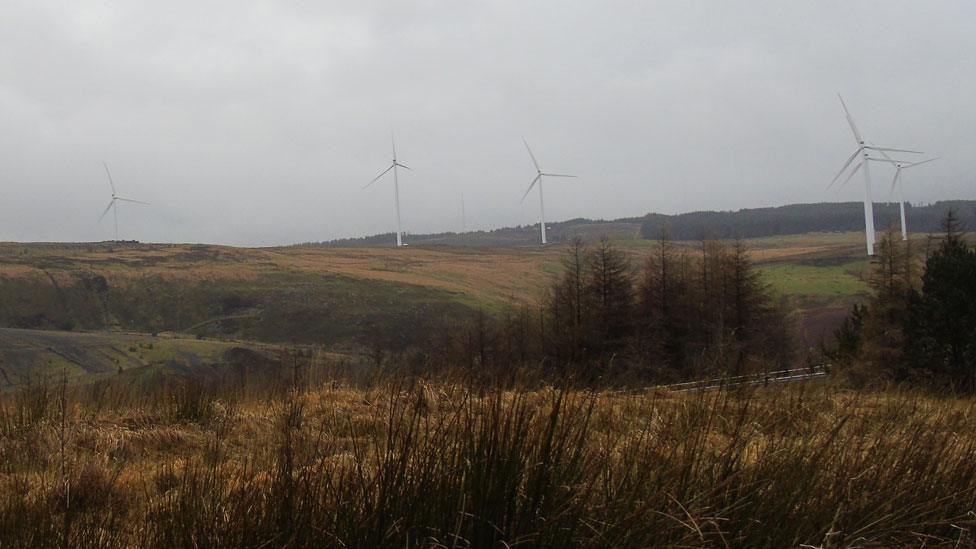
The wind farm has a community fund and local people vote for their favourite projects
Mr Montague said a focus on skills and infrastructure was starting to improve things.
"There's been vast improvement in the education performance of our schools in the last 10 years," he said.
"We're getting these skills right. We've got a fantastic primary school at the hub of the community and a secondary school which is renowned across Wales for the quality of its teaching and learning.
"There are loads of success stories, people I went to school with are doctors and pharmacists and a friend of mine worked on the Cern particle accelerator, external."

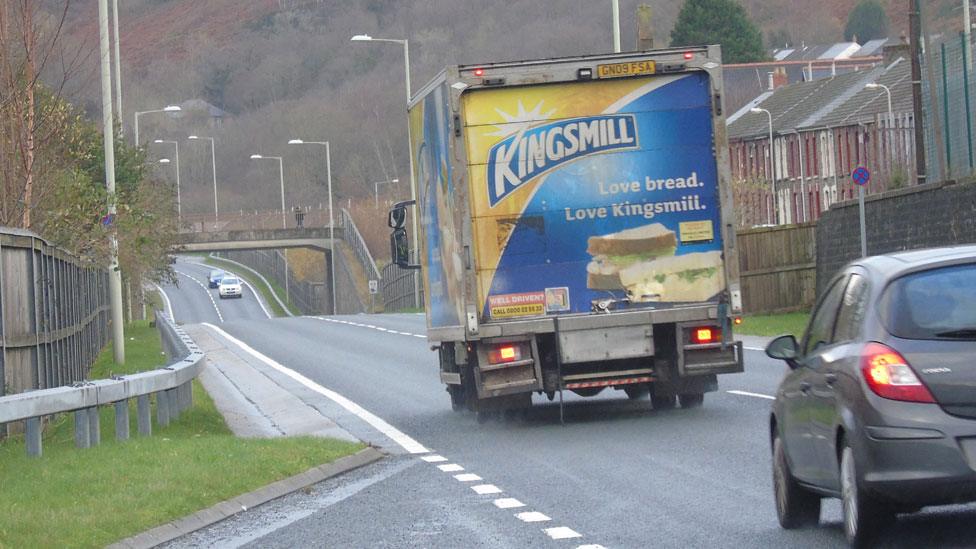
The Rhondda bypass has speeded up journeys into the valley
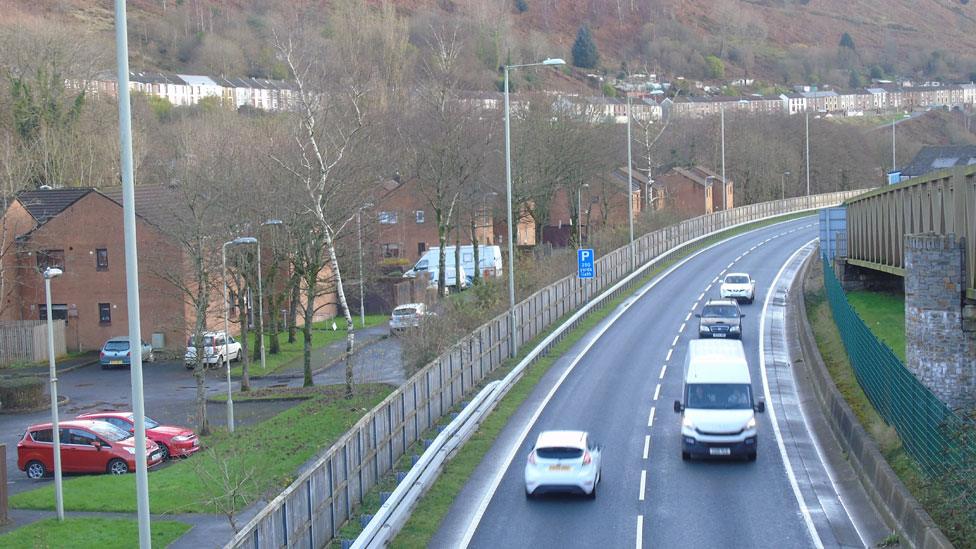
A ROAD TO REGENERATION?
Around half of people work locally as tradesmen or for small businesses or in factories.
But the proportion commuting to jobs in places such as Cardiff or Treforest is less than half the average for Wales.
In 2007, £98m Rhondda bypass opened and was seen as a major regeneration catalyst. Traffic no longer had to wind its way up narrow roads through the town of Porth and former mining villages.
But the new road stops just south of Tylorstown and motorists have to rejoin the old road as it takes an incline up the valley and the final miles to Maerdy.
Mr Montague said: "We still need the last leg of that journey from Tylorstown. Things have improved in terms of the road infrastructure.
"People look at the way the public sector and the way the economy is and think it's going to be like that for ever - doom and gloom.
"There will be a time when it picks back up and it's about us being ready to take those opportunities."
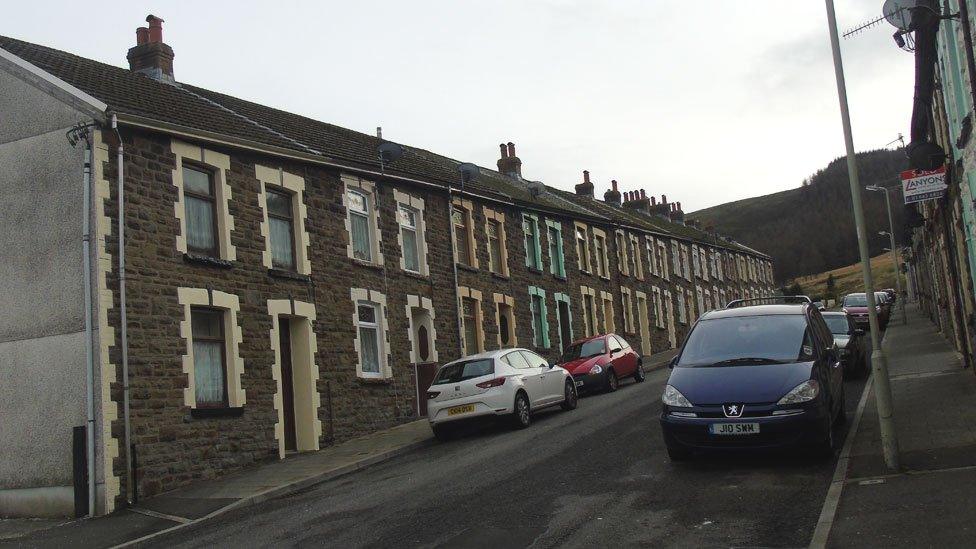
Maerdy has been attractive to buy-to-let investors but the council wants to encourage new house building
MOVING TO MAERDY?
The council is looking to use its powers to make private housing development more feasible in the valleys, to attract builders beyond the historic "snow line" at Pontypridd.
Mr Montague believes new homes in the village will not only bring construction jobs "but people living there will put money back into the economy as well".
He does not agree with one estate agent who told me Maerdy's image as deprived was not attractive to buyers.
Prices for terraced homes typically range from £50,000 to £80,000.
First-time buyers were "few and far between" with Pontypridd, Porth, Ynyshir and Tonyrefail more in demand.
Another told me they were very busy with sales to Maerdy but they were mainly people investing in buy-to-let properties.
Mr Montague said: "We've got a high percentage of home ownership within the community and we do tend to have people living in Maerdy who want to stay here, so we must be doing something right."
After speaking to him I met Bill Dacey, a former pub owner from Cardiff who moved to the edge of Maerdy 18 months ago. His wife commutes to work in the city.
"I know everyone living 10 doors either side of me," he said. "It's a slower pace of life - but a nice, slow pace of life."
- Published23 December 2015
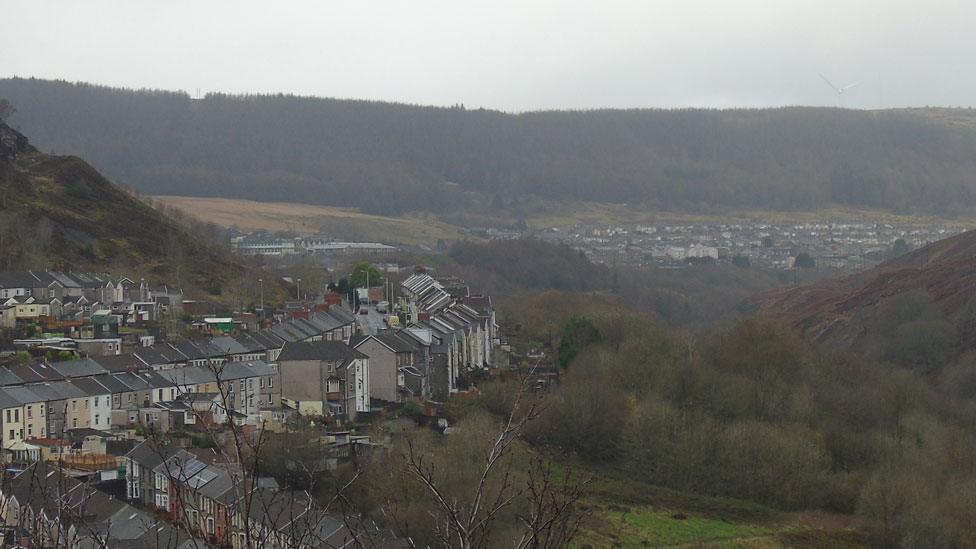
- Published21 December 2015
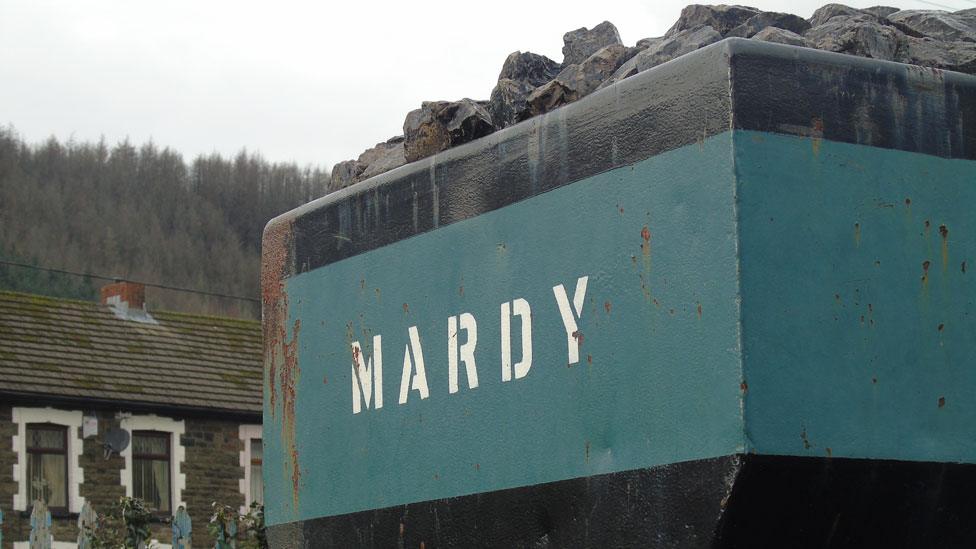
- Published22 December 2015
